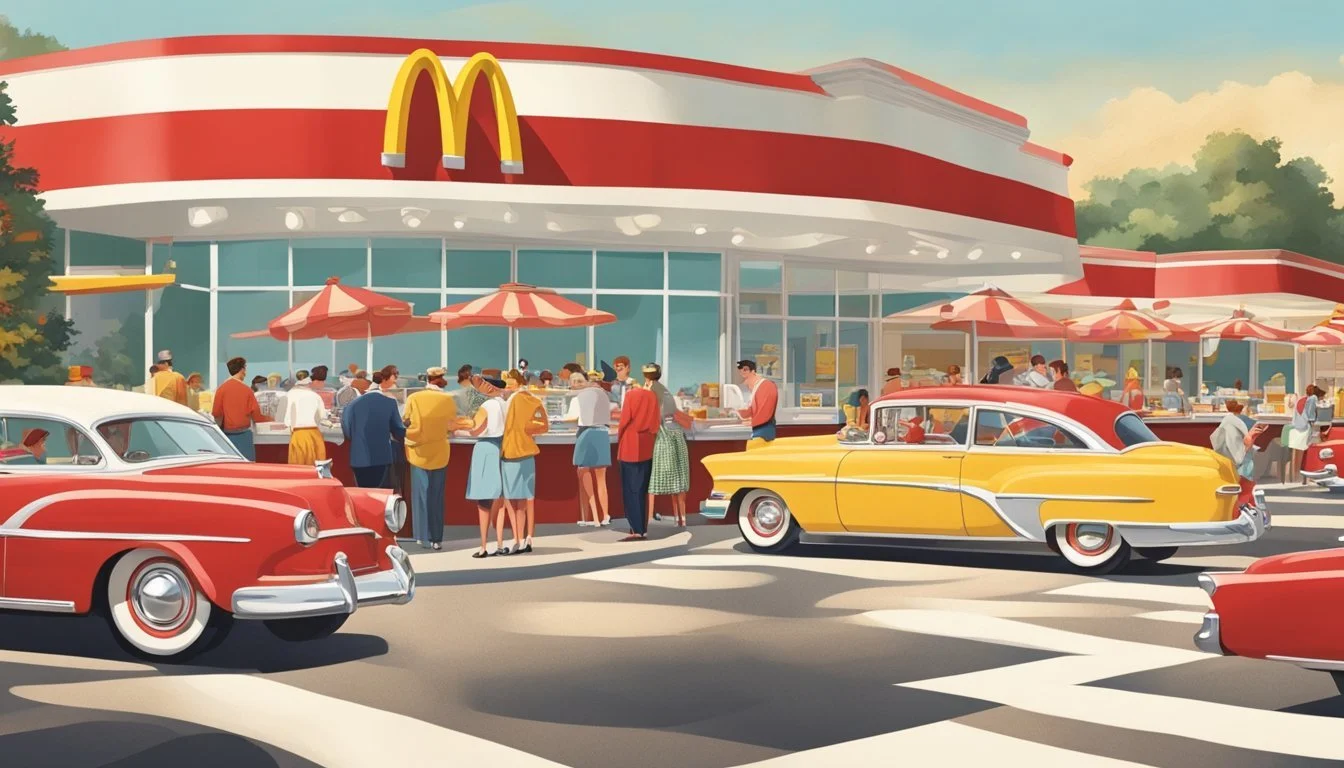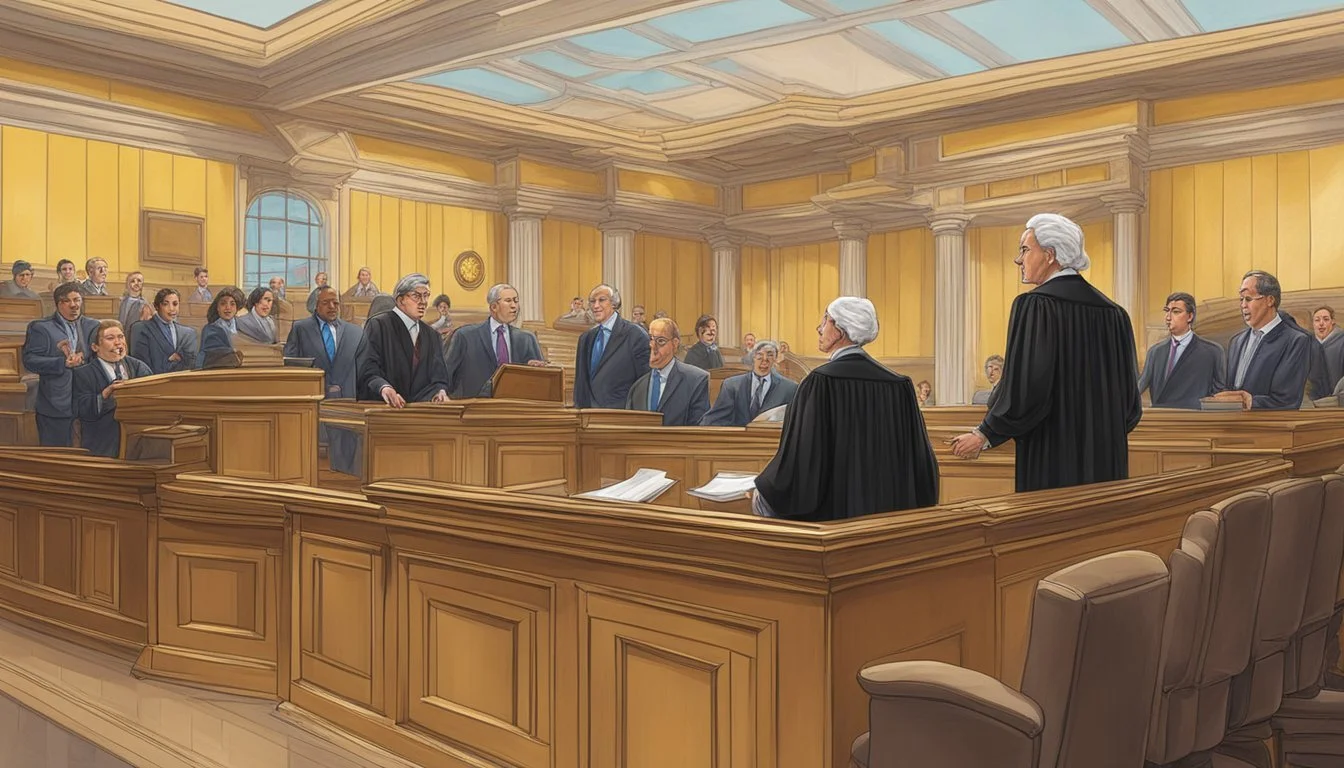The Genuine Founder: Ray Kroc's McDonald's Empire
From Milkshake Mixers to Global Fast Food Dominance
Ray Kroc's journey from selling milkshake mixers to building a global fast food empire is a quintessential American success story. In 1954, Kroc discovered a small but efficient burger restaurant run by the McDonald brothers in San Bernardino, California. Recognizing its enormous potential, he acquired the rights to expand the business.
Kroc transformed McDonald's from a local chain into the world's most profitable restaurant franchise operation. His vision and business acumen propelled the company's rapid growth across the United States and eventually around the globe. Kroc's innovative approach to franchising, quality control, and standardization set new benchmarks in the fast food industry.
While the McDonald brothers laid the foundation, it was Ray Kroc who truly built the McDonald's empire as we know it today. His relentless drive and strategic decisions shaped the company's trajectory, making the Golden Arches an iconic symbol recognized worldwide. Kroc's story demonstrates how entrepreneurial spirit and determination can turn a simple idea into a revolutionary business model.
The Rise of Ray Kroc
Ray Kroc's journey from a struggling salesman to fast food magnate reshaped the American restaurant industry. His vision and business acumen transformed a small hamburger stand into a global empire.
Early Life and Career
Ray Kroc was born in 1902 in Oak Park, Illinois. He dropped out of high school and worked various jobs, including playing piano in bands and selling paper cups. In the 1930s, Kroc became a successful milkshake mixer salesman.
His travels across the country exposed him to the growing fast food industry. Kroc's sales experience and keen eye for business opportunities would prove crucial in his later ventures.
The Fateful Meeting with the McDonald Brothers
In 1954, at age 52, Kroc visited a restaurant in San Bernardino, California, owned by Dick and Mac McDonald. He was impressed by their efficient system for producing burgers, fries, and shakes quickly.
Kroc saw immense potential in the brothers' operation. He convinced them to let him franchise the McDonald's concept nationwide. This meeting marked the beginning of Kroc's transformation into a fast food tycoon.
Kroc opened his first McDonald's franchise in Des Plaines, Illinois, in 1955. He focused on consistency, cleanliness, and quick service. His relentless drive and business savvy laid the foundation for McDonald's rapid expansion across America.
Building the McDonald's Brand
Ray Kroc transformed McDonald's from a small restaurant into a global fast-food empire through strategic branding and innovative business practices. His vision centered on consistency, efficiency, and widespread expansion.
Concept of Franchising
Kroc saw franchising as the key to rapid growth. He refined the franchise model, ensuring each location maintained strict quality standards. Franchisees received comprehensive training and support.
Kroc's approach differed from traditional franchising. He focused on long-term partnerships rather than quick profits from franchise fees.
McDonald's franchisees had to follow detailed operational guidelines. This ensured a uniform customer experience across all locations.
The franchise system allowed for rapid expansion while maintaining brand consistency. It became a cornerstone of McDonald's success.
The Speedee Service System
The Speedee Service System revolutionized fast food. It emphasized efficiency and standardization in food preparation and service.
Key elements included:
Assembly line-style food production
Limited menu options
Specialized equipment for faster cooking
Disposable packaging for quick service
This system reduced wait times and increased customer satisfaction. It became a model for the entire fast-food industry.
Kroc refined and expanded on the original system developed by the McDonald brothers. He continuously sought ways to improve speed and efficiency.
Nationwide Expansion
Kroc's expansion strategy focused on suburban locations near highways. This targeted families and travelers seeking quick, affordable meals.
He prioritized:
Consistent architecture and signage
Strategic site selection
Local advertising campaigns
Uniform pricing across locations
McDonald's rapid growth led to over 1,000 locations by 1968. Kroc's emphasis on standardization ensured brand recognition nationwide.
The expansion also included menu innovations tailored to regional tastes. This balanced consistency with local appeal.
Kroc's vision extended beyond the U.S., laying the groundwork for global expansion. His strategies set the stage for McDonald's international success.
Business Strategies and Vision
Ray Kroc's business acumen and strategic foresight propelled McDonald's from a single restaurant to a global fast-food empire. His innovative approaches to advertising, quality control, and real estate acquisition laid the foundation for the company's enduring success.
Innovative Advertisement
Kroc recognized the power of marketing to build brand awareness and drive customer traffic. He invested heavily in radio and television commercials, creating catchy jingles and memorable slogans. The "Golden Arches" logo became an iconic symbol, instantly recognizable worldwide.
Kroc also pioneered the concept of family-friendly advertising, targeting children with characters like Ronald McDonald. This strategy helped establish McDonald's as a destination for families and younger consumers.
To maximize local impact, Kroc encouraged franchisees to engage in community outreach and sponsorships. This grassroots approach fostered goodwill and strengthened McDonald's presence in neighborhoods across America.
Consistency and Quality Control
Kroc implemented strict standards for food preparation, service, and cleanliness across all McDonald's locations. He developed the Hamburger University to train franchisees and managers, ensuring consistent operations and customer experiences.
The "QSC&V" principle - Quality, Service, Cleanliness, and Value - became the cornerstone of McDonald's operations. This focus on standardization allowed the company to maintain uniform quality as it expanded rapidly.
Kroc also introduced innovative technologies to improve efficiency and consistency. The introduction of automated milkshake machines and standardized cooking equipment helped streamline operations and reduce variability in food quality.
Real Estate Investments
Kroc's most astute business strategy was his approach to real estate. He formed a separate company, Franchise Realty Corporation, to purchase and lease properties to franchisees.
This model allowed McDonald's to generate income from both food sales and rent. It also gave the company greater control over franchise locations and ensured prime real estate for future expansion.
Kroc's real estate strategy provided McDonald's with a valuable asset portfolio, contributing significantly to the company's long-term financial stability and growth potential.
By owning the land beneath franchises, McDonald's gained leverage in negotiations with franchisees and protected its interests in case of disputes or underperforming locations.
Legal Battles and Challenges
Ray Kroc's journey to build McDonald's into a global empire was marked by numerous legal conflicts and obstacles. These challenges tested the company's resilience and shaped its future trajectory.
Disputes with the McDonald Brothers
Ray Kroc's relationship with Mac and Dick McDonald deteriorated as McDonald's expanded. In 1961, Kroc bought out the brothers for $2.7 million, but disagreements persisted. The brothers claimed Kroc failed to honor verbal agreements, including a promised 0.5% royalty. This led to a protracted legal battle.
The McDonald brothers kept their original restaurant, renaming it "The Big M." Kroc retaliated by opening a McDonald's nearby, forcing them out of business. This aggressive move highlighted the growing rift between Kroc and the founders.
Franchisee Rights and Relations
As McDonald's grew, tensions arose between corporate leadership and franchisees. Disputes centered on:
Franchise agreements
Operational standards
Profit sharing
In 1998, a group of franchisees filed a lawsuit against McDonald's, alleging unfair business practices. The case, settled out of court, led to changes in franchise policies.
McDonald's faced criticism for its treatment of franchisees, with some claiming excessive control and unfair financial burdens. These conflicts shaped the company's approach to franchise management.
Regulatory Hurdles
McDonald's expansion invited scrutiny from regulatory bodies. Key challenges included:
Health and safety regulations
Environmental concerns
Labor practices
In 2001, the company faced a lawsuit over allegedly deceptive advertising of its french fries as vegetarian. This case resulted in a $10 million settlement and menu changes.
McDonald's also grappled with wage disputes. In 2014, the National Labor Relations Board ruled the company could be held liable as a "joint employer" for labor violations by franchisees. This decision had far-reaching implications for the fast-food industry.
Legacy and Cultural Impact
Ray Kroc's transformation of McDonald's into a global fast-food empire left an indelible mark on society. His business model and operational innovations reshaped the restaurant industry and influenced popular culture worldwide.
Global Influence of McDonald's
McDonald's golden arches became an iconic symbol recognized across continents. The company's expansion strategy led to restaurants in over 100 countries, adapting menus to local tastes while maintaining core offerings. This global reach introduced American fast-food culture to diverse populations.
McDonald's standardized food preparation methods influenced efficiency practices in various industries. The "McDonaldization" concept emerged, describing the impact of fast-food principles on society. This included predictability, calculability, efficiency, and control.
The brand's marketing campaigns, such as the Happy Meal and Ronald McDonald character, shaped childhood experiences for generations. McDonald's also became a cultural touchstone, featured in films, TV shows, and literature.
Ray Kroc's Philanthropy
Kroc's success enabled significant philanthropic efforts. He established the Ray A. Kroc Foundation in 1965, focusing on medical research, education, and social services. The foundation donated millions to various causes, including diabetes research and educational programs.
In 1974, Kroc and his wife Joan founded Ronald McDonald House Charities. This organization provides housing and support for families with children receiving medical treatment. The charity has since expanded globally, operating in over 60 countries.
Kroc's philanthropic legacy continues through ongoing McDonald's corporate social responsibility initiatives. These include sustainability efforts, educational scholarships, and disaster relief programs.
Criticism and Public Opinion
Despite its success, McDonald's faced criticism under Kroc's leadership and beyond. Health advocates raised concerns about the nutritional value of fast food and its potential role in obesity. This led to menu changes and the introduction of healthier options.
Labor practices came under scrutiny, with critics questioning wages and working conditions. The term "McJob" entered popular lexicon, describing low-paying, low-prestige positions.
Environmental concerns arose regarding packaging waste and the company's impact on global agriculture. In response, McDonald's implemented sustainability initiatives and sourcing policies.
Public opinion on Kroc himself was mixed. Some praised his business acumen and philanthropic efforts, while others criticized his aggressive expansion tactics and treatment of the McDonald brothers.
Conclusion
Ray Kroc's transformation of McDonald's into a global fast-food empire stands as a remarkable business achievement. His vision and determination propelled a small burger restaurant into an international powerhouse.
Kroc's success stemmed from recognizing the potential in the McDonald brothers' efficient system. He leveraged this concept to create a standardized, replicable model across thousands of locations.
The businessman's focus on consistency, quality, and speed revolutionized the fast-food industry. His innovative approaches to franchising and real estate acquisition became cornerstones of McDonald's expansion strategy.
Kroc's legacy extends beyond just hamburgers and fries. He pioneered concepts in supply chain management, marketing, and customer service that influenced countless other businesses.
Today, McDonald's continues to evolve and adapt, building on the foundation Kroc established. His story serves as an inspiration to entrepreneurs worldwide, demonstrating the power of perseverance and strategic thinking in building a successful business empire.


